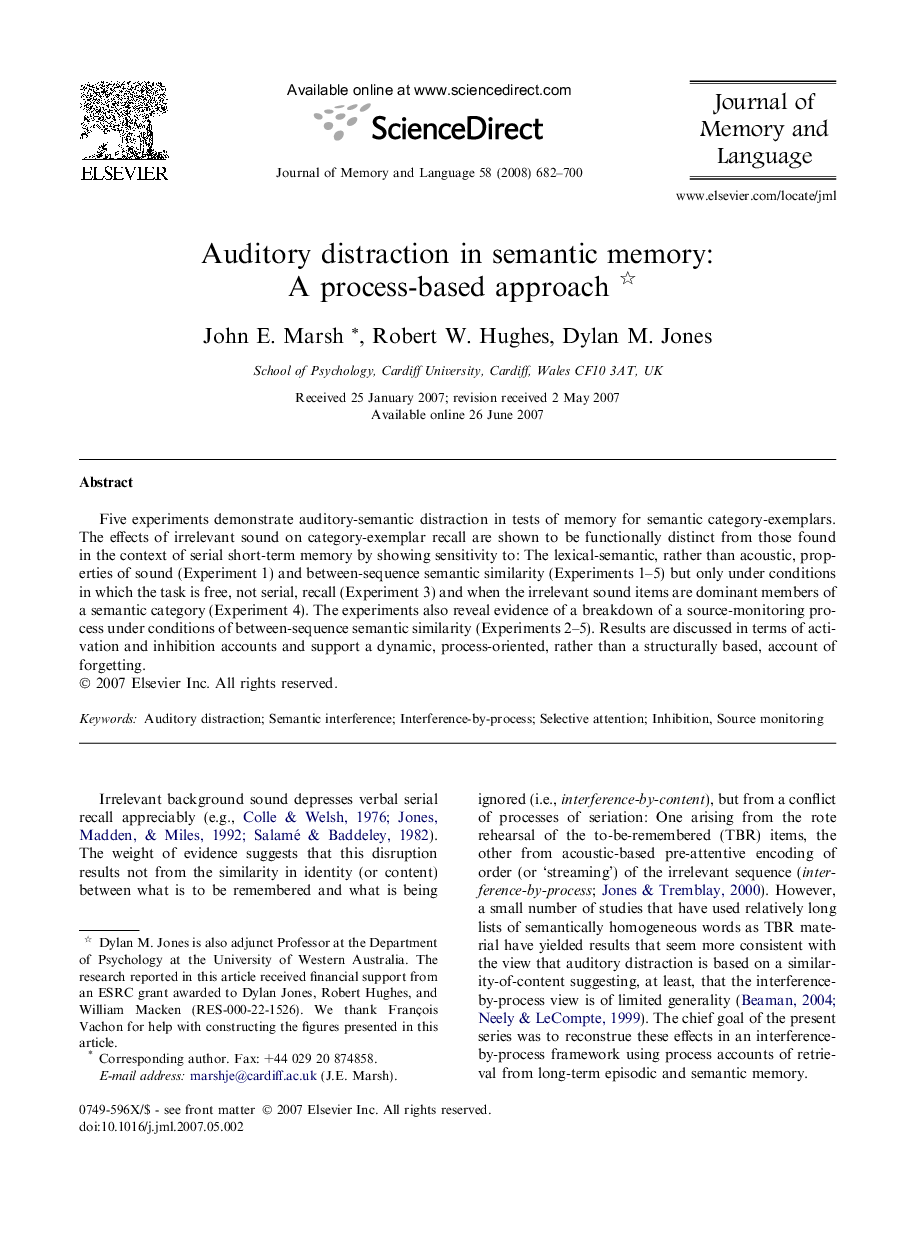| Article ID | Journal | Published Year | Pages | File Type |
|---|---|---|---|---|
| 932219 | Journal of Memory and Language | 2008 | 19 Pages |
Five experiments demonstrate auditory-semantic distraction in tests of memory for semantic category-exemplars. The effects of irrelevant sound on category-exemplar recall are shown to be functionally distinct from those found in the context of serial short-term memory by showing sensitivity to: The lexical-semantic, rather than acoustic, properties of sound (Experiment 1) and between-sequence semantic similarity (Experiments 1–5) but only under conditions in which the task is free, not serial, recall (Experiment 3) and when the irrelevant sound items are dominant members of a semantic category (Experiment 4). The experiments also reveal evidence of a breakdown of a source-monitoring process under conditions of between-sequence semantic similarity (Experiments 2–5). Results are discussed in terms of activation and inhibition accounts and support a dynamic, process-oriented, rather than a structurally based, account of forgetting.
